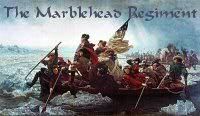An Appeal to Individual Valor
Lieutenant Paul Harris Nicholas,
Royal Marines, HMS Belleisle
21 October 1805
I was scarcely sixteen when I embarked for the first time, in the Belleisle of eighty guns, and joined the fleet off Cadiz, under the command of Lord Nelson, in the early part of October, 1805. On the 19th of that month the appearance of a ship under a press of sail steering for the fleet and firing guns, excited our attention, and every glass was pointed towards the stranger in anticipation of the intelligence which the repeating ships soon announced "That the enemy was getting under way." The signal was instantly made for a general chase, and in a few minutes all sail was set by the delighted crew. Our advanced ships got sight of the combined fleet the next morning, and in the afternoon of the 20th they were visible from the deck. Every preparation was made for battle; and as our look-out squadron remained close to them during the night, the mind was kept in continual agitation by the firing of guns and rockets.
As the day dawned the horizon appeared covered with ships. The whole force of the enemy was discovered standing to the southward, distant about nine miles, between us and the coast near Trafalgar. I was awakened by the cheers of the crew and by their rushing up the hatchways to get a glimpse of the hostile fleet. The delight manifested exceeded anything I ever witnessed, surpassing even those gratulations when our native cliffs are descried after a long period of distant service. There was a light air from the north-west with a heavy swell. The signal to bear up and make all sail and to form the order of sailing in two divisions was thrown out. The Victory, Lord Nelson's ship, leading the weather line, and the Royal Sovereign, bearing the flag of Admiral Collingwood, the second in command, the lee line. At eight the enemy wore to the northward, and owing to the light wind, which prevailed during the day, they were prevented from forming with any precision, and presented the appearance of a double line convexing to leeward. At nine we were about six miles from them, with studdingsails set on both sides; and as our progress never exceeded a mile and a half an hour, we continued all the canvas we could spread until we gained our position alongside our opponent.
---
At half-past ten the Victory telegraphed "England expects every man will do his duty." As this emphatic injunction was communicated through the decks, it was received with enthusiastic cheers, and each bosom glowed with ardour at this appeal to individual valour.
 I Remember
I Remember
















































<< Home